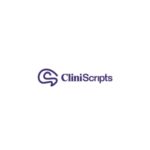For therapists, note taking is as important as the actual session itself. Such therapist notes ensure easy assessment of the current condition of the subject and track his progress during subsequent sessions.
Choosing SOAP notes counseling is important as it offers clarity and consistency in the patient’s care. These also make integration of tools like DAP and BIRP notes easy for practitioners.
For instance – the biophysical assessment becomes easy through the structured format used by SOAP notes for therapists. These are also useful in the following cases –
- Therapy intake – This helps in initial patient information collection,
- Intake vs. consultations – By clearly distinguishing between initial and ongoing patient evaluations, it is easy to achieve the best results.
- Hospital emergency discharge notes – Summarising treatment and follow-up recommendations is easy.
Why do new therapists need to understand SOAP notes counseling?
Starting your career as a therapist can be exciting yet overwhelming. You may find yourself struggling with learning new techniques, building rapport with clients, managing schedules, maintaining accurate and efficient documentations, etc.
The SOAP notes counseling are highly valued for their clarity and structure. These help to address the following –
- Subjective – The clients feelings, thoughts and experiences.
- Objective – What the therapist observes like behaviors, assessment and other measurable data.
- Assessment – The professional interpretation of the client’s progress or challenges.
- Plan – The next step in treatment and goals.
Such SOAP notes for therapists are designed to create an organised record of the therapy sessions. These are also useful to guide the future treatments.
Tips for writing effective SOAP notes for counseling
Through effective SOAP notes for counseling, it is possible to ensure effective results. To attain the same, it is important to focus on –
- Be concise but specific – It is crucial to avoid writing too much or too little. It is best to write relevant information to summarise the session.
- Focus on objective observations – Focus on aspects like client’s body language, tone or response to interventions.
- Keep these professional – It is important to ensure that the assessment reflects clinical reasoning instead of personal opinions. These must ideally match subjective or objective observations.
- Write actionable plans – The plan must clearly outline the best course of action, interventions or strategies.
Like therapy, the documentation process also improves with practice. By regularly reviewing these notes and templates, it is possible to develop your personal style.
However, it is important to avoid the following mistakes during the process –
- Writing narrative style notes that mix the above sections together.
- Vague terms must be avoided. Terms like good progress are irrelevant without specifics.
- Forgetting to connect assessment into subjective and objective observations.
- Lack of clear future plans.
- Overloading notes with too much detail.
For new therapists, mastering these notes can seem tough. However, with practice, it is easy to improve on the same.

